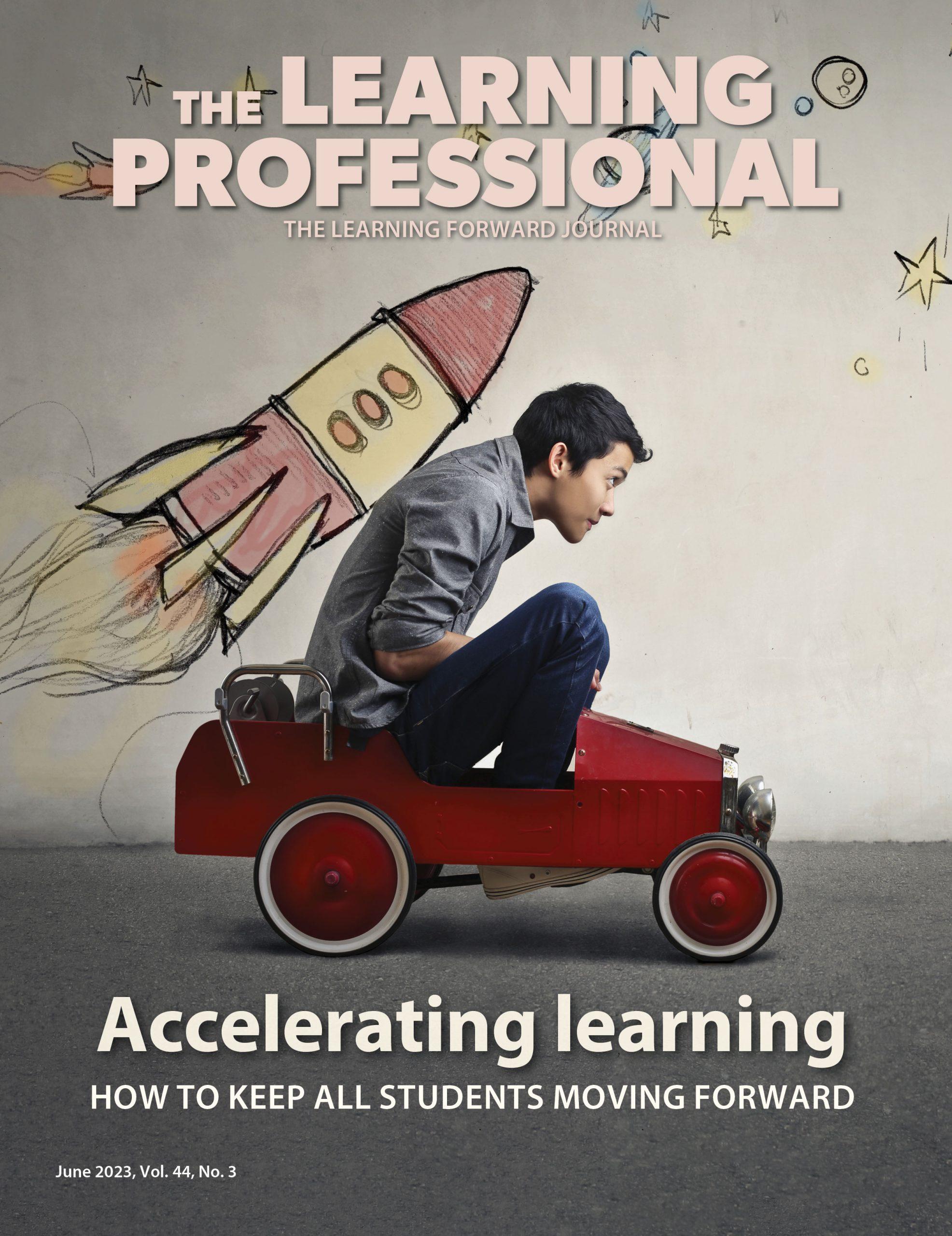A Leader's Top Task Is To Nurture Talent
Leadership
By Learning Forward
Categories: LeadershipFebruary 2016
Read the remaining content with membership access. Join or log in below to continue.
Sed ut perspiciatis unde omnis iste natus error sit voluptatem accusantium doloremque laudantium, totam rem aperiam, eaque ipsa quae ab illo inventore veritatis et quasi architecto beatae vitae dicta sunt explicabo. Nemo enim ipsam voluptatem quia voluptas sit aspernatur aut odit aut fugit, sed quia consequuntur magni dolores eos qui ratione voluptatem sequi nesciunt. Neque porro quisquam est, qui dolorem ipsum quia dolor sit amet, consectetur, adipisci velit, sed quia non numquam eius modi tempora incidunt ut labore et dolore magnam aliquam quaerat voluptatem.
In her full essay exploring the Leadership standard in Reach the Highest Standard in Professional Learning: Leadership, author Karen Seashore Louis offers keen insights into the question of how leaders affect the learning of other adults in a school. She writes particularly about how “school leaders can create a school culture in which all adults see themselves as part of the larger enterprise of continuous learning” (Louis, Hord, & von Frank, in press).
This excerpt takes a close look at what leaders need to understand about how learners approach change and their role in helping create a culture that recognizes the humans at the heart of change.
Professional learning that increases educator effectiveness and results for all students requires skillful leaders who develop capacity, advocate, and create support systems for professional learning.
About the Book
 Louis, K.S., Hord, S.M., & von Frank, V. (in press). Reach the highest standard in professional learning: Leadership. Thousand Oaks, CA: Corwin. Excerpted with permission.
Louis, K.S., Hord, S.M., & von Frank, V. (in press). Reach the highest standard in professional learning: Leadership. Thousand Oaks, CA: Corwin. Excerpted with permission.
References
Anderson, S.E. (1997). Understanding teacher change: Revisiting the Concerns Based Adoption Model. Curriculum Inquiry, 27(3), 331-367.
Camburn, E.M. (2010). Embedded teacher learning opportunities as a site for reflective practice: An exploratory study. American Journal of Education, 116(4), 463-489.
De Neve, D., Devos, G., & Tuytens, M. (2015). The importance of job resources and self-efficacy for beginning teachers’ professional learning in differentiated instruction. Teaching and Teacher Education, 47, 30-41.
Detert, J., Louis, K.S., & Schroeder, R. (2001). A culture framework for education: Defining quality values and their impact in U.S. high schools. Journal of School Effectiveness and School Improvement, 12(2), 183-212.
Firestone, W.A. (1980). Images of schools and patterns of change. American Journal of Education, 88(4), 459-487.
Gallucci, C. (2008). Districtwide instructional reform: Using sociocultural theory to link professional learning to organizational support. American Journal of Education, 114(4), 541-581.
Hall, G.E. & Hord, S.M. (1987). Change in schools: Facilitating the process. Albany, NY: SUNY Press.
Hall, G.E. & Hord, S.M. (2001). Implementing change: Patterns, principles, and potholes. Boston, MA: Allyn & Bacon.
Ing, M. (2010). Using informal classroom observations to improve instruction. Journal of Educational Administration, 48(3), 337-358.
Lemov, D. (2015). Teach like a champion 2.0: 62 techniques that put students on the path to college. San Francisco, CA: Jossey-Bass.
Louis, K.S., Hord, S.M., & von Frank, V. (in press). Reach the highest standard in professional learning: Leadership. Thousand Oaks, CA: Corwin.
Louis, K.S. & Kruse, S.D. (1998). Creating community in reform: Images of organizational learning in inner-city schools. In K. Leithwood & K.S. Louis (Eds.), Organizational learning in schools (pp. 17-46). New York, NY: Routledge.
Morgan, G. (1997). Images of organization (2nd ed.). Thousand Oaks, CA: Sage Publications.
Opfer, V.D. & Pedder, D. (2011). Conceptualizing teacher professional learning. Review of Educational Research, 81(3), 376-407.
Paavola, S., Lipponen, L., & Hakkarainen, K. (2004). Models of innovative knowledge communities and three metaphors of learning. Review of Educational Research, 74(4), 557-576.
Printy, S.M. & Marks, H.M. (2006). Shared leadership for teacher and student learning. Theory Into Practice, 45(2), 125-132.
Resnick, L.B. & Scherrer, J. (2012). Social networks in “nested learning organizations” — a commentary. American Journal of Education, 119(1), 183-192.
Senge, P. (2002). The fifth discipline: The art & practice of the learning organization. New York, NY: Currency Doubleday.
Zepeda, S.J. (2009). The instructional leader’s guide to informal classroom observations. New York, NY: Routledge.
Learning Forward is the only professional association devoted exclusively to those who work in educator professional development. We help our members plan, implement, and measure high-quality professional learning so they can achieve success with their systems, schools, and students.
Categories: Leadership
Recent Issues
TAKING THE NEXT STEP
December 2023
Professional learning can open up new roles and challenges and help...
REACHING ALL LEARNERS
October 2023
Both special education and general education teachers need support to help...
THE TIME DILEMMA
August 2023
Prioritizing professional learning time is an investment in educators and...
ACCELERATING LEARNING
June 2023
Acceleration aims to ensure all students overcome learning gaps to do...









